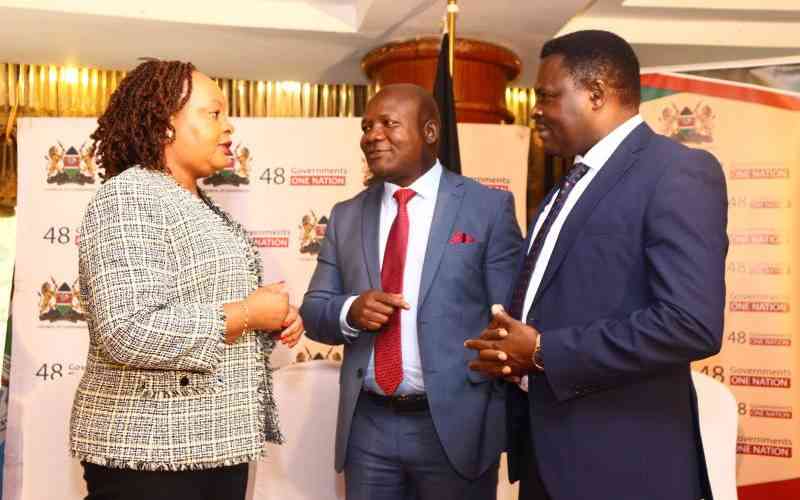×
The Standard e-Paper
Smart Minds Choose Us

Council of Governors Anne Waiguru(Left), Kakamega Governor Fernandes Barasa and Tharaka Nithi(Right) conversing on 30th June 2023 at Safari Park Hotel in Nairobi, during the status of devolutions ten years later.[Edward Kiplimo, Standard]
High pending bills continue to draw back gains of devolution a decade later.